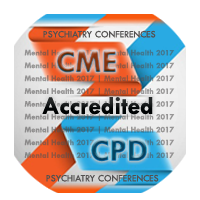
Colin Pritchard
Bournemouth University, UK
Title: The Mental Health Syndrome Paradigm: A New Paradigm to Improve Child Development and Protection
Biography
Biography: Colin Pritchard
Abstract
This is a journey the team has shared as we gave up established ideas about child neglect/abuse, which is challenging as we confront anxieties about adding to stigma surrounding mental health problems. Consequently, colleagues might also find this difficult. Based on recent and new research our thesis is that practitioners need to consider the child-development-protection and psychiatric interface in a new preventative and protection paradigm. Rather than consider separate psychiatric diagnoses, psychoses, depression, personality disorder, alcohol, substance abuse, we urge they are considered as an over-lapping mental health syndrome paradigm that can improve child development and protection against neglect/abuse. Evidence is that Child-Abuse-Related-Death (CARDs) assailant’s problems essentially psychological, although compounded by socio-economic factors the majority of assailants had mental health problems, psychosis or severe personality disorders: Neglect deaths are a minority. We show the mental health problems has a far higher death rate for young people than CARDS and challenge the concept of a neglect to abuse continuum at the extreme leads to CARD’s. High UK child mortality is linked to relative poverty which needs a greater societal/political response. Mental health syndrome paradigm is based on a normative child development perspective, focusing on the often ignored impact parental mental illness on child’s psychosocial development. Depression, suicidal behavior and mental health problems in adolescents and young adults are linked to history of adverse childhood, especially parental mental illness, but are ignored until the difficulties subsequently manifest themselves. Th e MHSP indicates we need a real integrated inter-agency holistic approach that is intergenerational to more
effectively enhance the child’s development, whilst making them safer.

